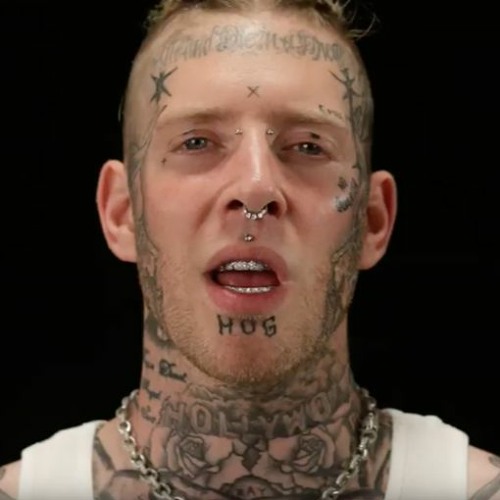In the ever-predictable cosmos of the modern music charts, the top of the rap category is typically reserved for a small, rotating pantheon of titans. The names are familiar, the rollouts are meticulously planned by major labels, and the success is amplified by a billion-dollar media ecosystem. You expect to see Drake, Kendrick Lamar, J. Cole, or Travis Scott. You anticipate a blockbuster surprise drop from a legacy artist or a viral TikTok-fueled ascent from a new-guard rapper.
What you do not expect is for the No. 1 rap album in the country to belong to a man who has no major record label, receives zero radio airplay, is almost never featured in mainstream music publications, and whose entire career is a direct and defiant challenge to the very industry he is now dominating.
Yet, this week, the No. 1 spot on the Billboard Top Rap Albums chart belongs to Tom MacDonald, a fiercely independent and controversial Canadian rapper, for his latest collaborative project, “The Brave 2,” with fellow independent artist Adam Calhoun. For the casual music fan, the name might be a footnote. For the music industry establishment, it’s a confounding and perhaps inconvenient reality. But for his massive, mobilized, and intensely loyal fanbase, it is a declaration of victory.
MacDonald’s chart-topping success is one of the most fascinating and unexpected stories in music today. It is a testament to a new paradigm of success, one built entirely outside the traditional gatekeepers. His rise was not facilitated by industry connections, but forged in spite of them, powered by a direct-to-consumer business model, an unfiltered connection with his audience, and a willingness to say things that make the mainstream profoundly uncomfortable.

Who is Tom MacDonald? The Unlikely Figurehead
To understand why his success is so surprising, one must first understand who Tom MacDonald is. He is not a product of the Atlanta trap scene, the lyrical battlegrounds of New York, or the G-funk boulevards of Los Angeles. He is a 37-year-old former professional wrestler from British Columbia, Canada. Covered in tattoos, with an intense, confrontational stare, he doesn’t fit the mold of a typical rapper, and that is entirely by design.
MacDonald began his career in music over a decade ago, but it was in the late 2010s that he found his unique and controversial voice. He shifted his lyrical focus to themes that have become his trademark: a fiery critique of “woke” culture, cancel culture, identity politics, and mainstream media narratives. His songs often take the form of polemics, directly addressing the cultural grievances of an audience that feels left behind or silenced by modern progressive discourse.
His music is a direct and unapologetic counter-narrative. In songs like “Fake Woke,” “Snowflakes,” and “American Flags,” he positions himself as a truth-teller in a world of hypocrisy. He raps about mental health, the struggles of the working class, and a sense of disenfranchisement, all while weaving in patriotic themes and a deep skepticism of authority—be it governmental or cultural.
This content has made him a pariah to the mainstream music press, who often label his work as inflammatory or right-wing propaganda. Yet, it has also made him a hero to millions of fans who see him as one of the only artists speaking to their experiences and frustrations. This intense connection is the fuel for his entire enterprise.
The Business Model: Weaponizing Independence
The true genius behind Tom MacDonald’s success lies in his revolutionary and meticulously executed business model. He and his partner and creative collaborator, Nova Rockafeller, operate as a completely independent, self-contained unit. They have no record label, no publisher, no marketing team, and no publicists. They do it all themselves, and in doing so, they have created a direct pipeline to their audience that bypasses every traditional industry gatekeeper.

Direct-to-Consumer Dominance: While the modern music industry is obsessed with streaming numbers, MacDonald’s strategy is rooted in the old-school power of direct sales. The primary driver of his chart success is his online merchandise store. For every album release, he offers a range of physical products: signed CDs, vinyl records, and extensive lines of clothing and merchandise emblazoned with his logos and lyrics.
This is a crucial distinction. In the world of Billboard charts, a direct sale of an album (whether a physical CD or a digital download) carries significantly more weight than thousands of streams. While a mainstream artist needs to rack up billions of streams to move the needle, MacDonald’s fans mobilize to buy physical products. They understand that a $20 purchase of a signed CD is a powerful vote that pushes their favorite artist up the charts.
Financially, this model is vastly more profitable. An artist might earn a fraction of a cent ($0.003 to $0.005) for a single stream on Spotify. After the record label, publisher, and other entities take their cut, the artist is left with a pittance. By selling a signed CD for $20 directly from his own website, MacDonald and Rockafeller keep almost all of the profit. This financial independence means he never has to compromise his message to appease a corporate sponsor or a record label executive.
The Music Video as the Entire Marketing Campaign: With no radio play or press coverage, MacDonald’s primary marketing tool is the music video. He and Rockafeller invest heavily in creating high-production-value, visually arresting videos for nearly every single. These videos, released on YouTube, are his version of a global press release and a primetime commercial rolled into one. They regularly accumulate tens of millions of views, driven entirely by his dedicated online audience who share them across social media. The videos are provocative and often controversial, engineered to spark conversation and debate, which in turn fuels the algorithm and introduces his work to new audiences.
The Content: Tapping into a Cultural Divide
You cannot explain Tom MacDonald’s success without analyzing the content of his music and the audience it resonates with. He has tapped into a vast and underserved market: a cross-section of listeners, often described as the “silent majority,” who feel that mainstream culture, from Hollywood to the news media to the music industry, does not reflect their values.
His lyrics are a direct address to this audience’s anxieties and frustrations. When he raps about the fear of being “canceled” for saying the wrong thing, the erosion of traditional values, or the hypocrisy he perceives in political and social movements, he is articulating a sentiment that is widespread but rarely expressed in popular music.
His audience sees buying his album as more than just a consumer choice; it is a political and cultural act. It’s a way to support a voice they believe is being actively suppressed. It’s a way to send a message to the mainstream that they exist and that they have market power. This transforms a simple fanbase into a mobilized and highly engaged community. They don’t just stream his music; they evangelize it. They are participants in a movement, and getting his album to No. 1 is a collective goal, a tangible victory against a cultural establishment they feel has ignored or maligned them.
Why the Industry Ignores Him (And Why It Doesn’t Matter)
The mainstream music industry’s blackout of Tom MacDonald is near-total. You will not hear his songs on major radio networks. You will not see his profile in Rolling Stone or Pitchfork. He will not be nominated for a Grammy. This omission is a combination of several factors:
- His Independent Status: The industry is a closed ecosystem. Major labels, streaming platforms, and media outlets have a symbiotic relationship. An artist who operates entirely outside of that system offers them no financial benefit.
- His Controversial Content: His lyrical themes are often in direct opposition to the progressive values that are prevalent in modern media and entertainment circles. For many publications and platforms, giving him coverage would be seen as an endorsement of views they find objectionable.
However, this is the great paradox of Tom MacDonald’s career: the more the mainstream establishment ignores him, the more it proves his point to his fans. Every time he hits No. 1 on the charts without their help, it validates his message that the gatekeepers are out of touch and that their influence is waning. The lack of traditional promotion becomes its own, even more powerful, form of promotion. It strengthens the narrative of the outsider storming the castle walls, and it galvanizes his community to work even harder to ensure his success.
A Sign of the Times
Tom MacDonald and Adam Calhoun’s “The Brave 2” hitting No. 1 on the rap charts is not a fluke or a statistical anomaly. It is a powerful signal of a profound shift in the music industry and in the broader culture. It demonstrates that in the digital age, the traditional gatekeepers of culture no longer hold a monopoly on success.
His career is a blueprint for a new kind of artist-entrepreneur, one who leverages technology to build a direct and unbreakable bond with a specific, underserved audience. It proves that a massive and economically powerful niche can outmuscle the mainstream on a sales-based battlefield.
You may not have expected to see his name at the top of the charts. You may not agree with his message. But his success is an undeniable and important cultural phenomenon. It reveals a deep cultural divide in society and shows that the silent majority, when given a voice they believe in, is not so silent after all.

